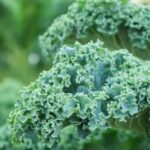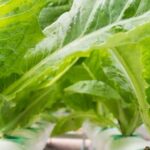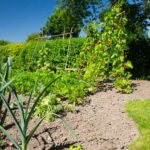Squirrels are a common sight in many neighborhoods, but do squirrels mess with vegetable gardens? Gardeners often find themselves battling these familiar furry creatures who have an undeniable knack for causing trouble. From uprooted plants to missing vegetables, it’s no secret that squirrels can wreak havoc on a well-tended garden. In this article, we’ll explore the impact of squirrels on vegetable gardens and discuss effective strategies for gardeners to protect their crops from these persistent pests.
Squirrels are known for their playful antics and nimble movements. Their natural curiosity and agility make them both entertaining to watch and a potential nuisance in the garden. Understanding the behavior and habits of squirrels is essential for developing effective deterrent techniques and protecting vegetable gardens from their interference.
The allure of ripe vegetables often draws in squirrels, leading to frustrating instances of damage. Whether it’s nibbled leaves or partially eaten fruits, these pesky critters can leave a trail of destruction in their wake.
Identifying which vegetables are most attractive to squirrels and why they find certain crops irresistible will help gardeners take proactive measures to safeguard their harvests. Stay tuned as we dive into the specifics of squirrel behavior and explore methods for managing their impact on vegetable gardens.
Characteristics of Squirrels
Squirrels are known for their playful and curious nature, often darting around in search of food or a place to bury their treasures. These rodents are diurnal creatures, meaning they are most active during the day, and their behavior can vary depending on the species and habitat. With a keen sense of smell and sharp claws for climbing, squirrels are adept at navigating through various garden landscapes.
One of the defining characteristics of squirrels is their habit of gnawing on objects to wear down their teeth, which grow continuously throughout their lives. This behavior can lead them to chew on various items in the garden, including plants, fruits, and even garden tools. Their natural instinct to hoard food also makes them prone to digging up and stealing seeds or bulbs that have been planted by gardeners.
In addition to their acrobatic abilities and quick movements, squirrels are also highly adaptable animals. They have been known to thrive in urban environments as well as rural areas, making them a common sight in many neighborhoods. Understanding these characteristics is crucial for devising effective strategies to protect vegetable gardens from squirrel interference.
Vegetables Squirrels Are Attracted To
Squirrels are known to have a particular affinity for certain vegetables commonly found in home gardens. Some of the vegetables that squirrels are attracted to include tomatoes, corn, and pumpkins. Squirrels are drawn to these vegetables due to their high water content, making them especially appealing during dry periods. Additionally, squirrels are also known to target vegetables with soft and tender foliage, such as lettuce and spinach.
One reason why squirrels find tomatoes particularly enticing is because of their juicy and flavorful nature. The scent of ripe tomatoes can attract squirrels from a distance, prompting them to investigate and potentially cause damage to the fruits. Corn is another favorite of squirrels, as they enjoy gnawing on the kernels and taking bites out of the cobs. Pumpkins are also susceptible to squirrel damage, especially as they ripen and become more fragrant.
As gardeners strive to protect their vegetable gardens from squirrel interference, it’s important to understand the specific vegetables that may be targeted by these furry pests. By being aware of the types of vegetables that attract squirrels, gardeners can implement proactive measures to safeguard their crops and minimize potential damage.
| Vegetable | Reason for Attraction |
|---|---|
| Tomatoes | Juicy and flavorful nature |
| Corn | Gnawing on kernels and cobs |
| Pumpkins | Ripening fragrance and soft texture |
Signs of Squirrel Damage
When it comes to dealing with squirrels in your vegetable garden, it’s important to be able to recognize the signs of their presence and the damage they can cause. One common sign that squirrels have been in the garden is chewed or damaged plants.
Squirrels are known for their chewing habits, and they may nibble on leaves, stems, or even fruits and vegetables. This can not only affect the appearance of your garden but also impact the growth and yield of your crops.
In addition to chewed plants, another indication of squirrel damage is missing vegetables. Squirrels are attracted to a variety of vegetables, including tomatoes, corn, pumpkins, and more. If you notice that some of your vegetables seem to disappear overnight or show signs of being partially eaten, it’s likely that squirrels are responsible. These missing or damaged vegetables can be frustrating for gardeners who put time and effort into growing their produce.
To keep track of squirrel activity in your garden, look for other physical evidence such as paw prints or digging around plants. Squirrels may also leave behind droppings or nesting materials, giving you further clues about their presence in your vegetable patch.
| Signs | Description |
|---|---|
| Chewed/Damaged Plants | Squirrels may nibble on leaves, stems, and fruits/vegetables. |
| Missing Vegetables | Squirrels are attracted to various vegetables and may cause some to disappear or show signs of being eaten. |
| Physical Evidence | Look for paw prints, digging around plants, droppings, or nesting materials left by squirrels. |
Methods for Deterring Squirrels
Squirrels can be a nuisance for vegetable gardeners, especially when they target the prized produce. Implementing effective deterrent methods can help protect the garden from squirrel interference.
Using Repellents
One common method for deterring squirrels is the use of repellents. There are various types of repellents available, including natural and chemical options. Some gardeners opt to spray their plants with a mixture of hot pepper or garlic, which can work as a natural squirrel deterrent. Chemical repellents can also be effective but should be used with caution, especially in edible gardens.
Installing Barriers
Barriers can also be an effective way to keep squirrels out of vegetable gardens. This can include using physical barriers such as wire mesh or netting to cover plants and create a barrier against squirrels. Additionally, planting vegetables in raised beds or containers can make it more difficult for squirrels to access the plants.
Noise Deterrents
Another tactic for deterring squirrels is the use of noise deterrents. Squirrels are often skittish creatures and may be scared off by sudden noises or movements. Some gardeners use motion-activated devices that emit a loud noise when a squirrel comes near. Other options include wind chimes or even setting up a radio near the garden to create consistent noise.
By implementing these methods for deterring squirrels, gardeners can better protect their vegetable gardens from these persistent pests and ensure a successful harvest season.
Natural Predators of Squirrels
Squirrels are known for their agility and quick movements, making them a difficult pest to manage in vegetable gardens. While there are various methods for deterring squirrels, one natural approach is to harness the power of their predators. Here are some natural predators of squirrels that can help keep their population in check:
1. Birds of Prey: Raptors such as hawks and owls are natural predators of squirrels. Their presence in the area can deter squirrels from frequenting the garden. Installing perches or nesting boxes for these birds can encourage them to patrol the area and keep squirrel populations at bay.
2. Snakes: Some species of snakes, such as rat snakes and kingsnakes, feed on small mammals including squirrels. Having a healthy population of non-venomous snakes in the vicinity can act as a natural deterrent for squirrels.
3. Domestic Pets: Dogs and cats are also natural predators of squirrels. Allowing pets to roam outdoors (while under supervision) may discourage squirrels from entering the garden.
Additionally, using predator scent deterrents derived from these animals can create the illusion that potential predators are nearby, causing squirrels to avoid the area altogether.
By leveraging natural predator-prey relationships, gardeners can help manage squirrel populations without resorting to harmful or invasive methods. However, it’s important to research local regulations and ethical considerations when implementing these strategies in residential areas.
Community Efforts to Manage Squirrel Population
As cute and fluffy as squirrels may be, they can wreak havoc on vegetable gardens, causing frustration for gardeners. Fortunately, there are community-based strategies for managing squirrel populations that can help mitigate the impact of these critters. By working together with neighbors and fellow gardeners, it is possible to address squirrel issues in a collaborative manner.
Some effective community efforts for managing the squirrel population include:
- Setting up neighborhood watch groups specifically focused on monitoring and addressing squirrel activity
- Organizing community workshops or information sessions to educate residents on humane ways of deterring squirrels from their gardens
- Sharing resources and tips for implementing deterrent tactics, such as providing recommendations for effective repellents or building communal barriers
By coming together as a community to address squirrel issues, residents can pool their knowledge and resources to effectively manage the local squirrel population in a way that benefits everyone.
In addition to neighborhood-specific efforts, collaborating with local wildlife or conservation organizations can also provide valuable support in managing squirrel populations. These organizations may offer guidance on humane removal techniques, provide access to professional trappers, or even assist with habitat modification to discourage squirrels from frequenting residential areas. By leveraging the expertise of these organizations, communities can work towards long-term solutions for managing squirrel populations and protecting their vegetable gardens.
Conclusion
In conclusion, while squirrels can certainly be a nuisance in vegetable gardens, there are ways for gardeners to mitigate their impact. By understanding the characteristics and behaviors of squirrels, as well as knowing which vegetables they are most attracted to, gardeners can take proactive steps to protect their crops.
It is important for gardeners to be vigilant about identifying signs of squirrel damage and implementing effective deterrents. Whether it’s utilizing natural predators or collaborating with neighbors on community-based strategies, there are numerous options available to manage the squirrel population in a way that minimizes disruption to vegetable gardens.
Ultimately, it is essential for gardeners to stay informed and proactive in protecting their gardens from squirrel interference. By being aware of the various methods for deterring squirrels and taking advantage of community efforts to manage the population, individuals can maintain successful vegetable gardens despite these furry pests.
It’s also important to recognize the role of natural predators in keeping squirrel populations in check and consider incorporating their scents or decoys as part of a comprehensive strategy. With these tactics in mind, gardeners can confidently protect their vegetables from squirrel damage and ensure a bountiful harvest.
Overall, while dealing with squirrels in vegetable gardens may present challenges, it is possible for gardeners to effectively address the issue. Armed with the knowledge of squirrel behavior and equipped with proven deterrent methods, individuals can maintain flourishing vegetable gardens without undue interference from these curious critters. By taking action and working collaboratively with others when necessary, gardeners can successfully protect their crops from squirrel-related damage.
Frequently Asked Questions
How Do I Keep Squirrels From Eating My Vegetable Garden?
There are several methods you can try to keep squirrels from eating your vegetable garden. One option is to use physical barriers such as fencing or netting to keep the squirrels out.
Another approach is to use squirrel repellents, such as sprays or granules, that can deter them from entering your garden. Some people also find success with planting squirrel-resistant plants or using noise-making devices to scare the squirrels away.
Are Squirrels a Problem for Vegetable Gardens?
Yes, squirrels can be a problem for vegetable gardens. They are known for digging up and eating bulbs, seeds, and young plants, as well as foraging on ripe fruits and vegetables. Their activity can lead to damage and loss of crops in a garden if not properly managed.
How Do Farmers Keep Squirrels Away?
Farmers use a variety of methods to keep squirrels away from their crops. Some may use traps or shooting as a means of population control, while others employ scare tactics such as visual deterrents like scarecrows or reflective tape.
Additionally, some farmers choose to plant trap crops that are more attractive to squirrels than their main crop, which can help protect the primary crop from being damaged by the squirrels.

If you’re looking to get into vegetable gardening, or are just looking for some tips on how to make your current garden better, then you’ve come to the right place! My name is Ethel and I have been gardening for years. In this blog, I’m going to share with you some of my best tips on how to create a successful vegetable garden.





